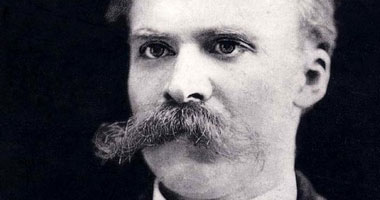The German philosopher Friedrich Nietzsche, who is regarded as one of the most important figures in contemporary Western philosophy, passed away on this date in 1900, a century ago.
Prior to pursuing philosophy, he began his career by studying the law of the classical languages. In 1869, at the age of twenty-four, he was appointed professor of language at Basel University. He held this position until he resigned in 1879 due to health issues that plagued him for the majority of his life. He then spent the remainder of his time writing the most significant books. He collapsed in 1889 at the age of forty-four, lost all of his mental capacity, and spent the rest of his life under the care of his mother and sister. He passed away in 1900.
In particular, his writings Beyond Good and Evil and Ethics place a strong emphasis on Nietzsche’s historical investigation of the evolution of contemporary ethical systems and norms.
Nietzsche observed that throughout human history, there had been a fundamental shift from thinking about “good and bad” to thinking about “good and evil.” He also observed that there are various kinds of morality that have developed as a result of the multiplicity of moral sources and the diversity of moral standards and values.
It is “good” to be happy and to possess things that make you happy, such as riches, strength, health, and power, and it is “bad” to be unhappy. Nietzsche refers to this original system of morality as “the ethics of the masters,” which relates to the Greek Homer. It implies that you are treated like aristocrat-ruled slaves. Understanding: poor, weak, sick, compassionate; They are the subject of compassion or disgust, not hate.
The “morals of the masters” are the source of the “morals of the slaves,” where the distinction between “good” and “evil” is used to define morality. Good is equated with kindness, piety, self-control, intelligence, and progress; evil is represented by secularism, cruelty, selfishness, and aggression.
According to Nietzsche, the morals of slaves are pessimistic and cheese, and their values only serve to relieve themselves and those who suffer similarly. Nietzsche also makes a connection between the morals of slaves and Jewish and Christian traditions, and believes that the morals of slaves were developed out of their enmity and hostility toward one another.
Nietzsche believes that the idea of equality allowed slaves to coexist with their status without hating themselves, and through their denial of the natural disparity between people (in success, strength, beauty or intelligence) The slaves gained a way to escape by generating new values that reject what is considered a source of frustration, to overcome their feelings The inferiority falls under “the morals of the masters'” standards.
The servant declares his weakness to be “fed up” after realising that it is a question of choice.
In his writings, Nietzsche makes the claim that the nihilism that has been prevalent in Europe is a product of the morals of slaves. Modern and Christian Europe is in a state of hypocrisy due to the dispute between the morals of gentlemen and the morals of slaves, and they are two contradictory values that define the values of most Europeans..
The date marks Nietzsche’s passing anniversary. Learn about his most important ideas about the morals of masters and slaves

